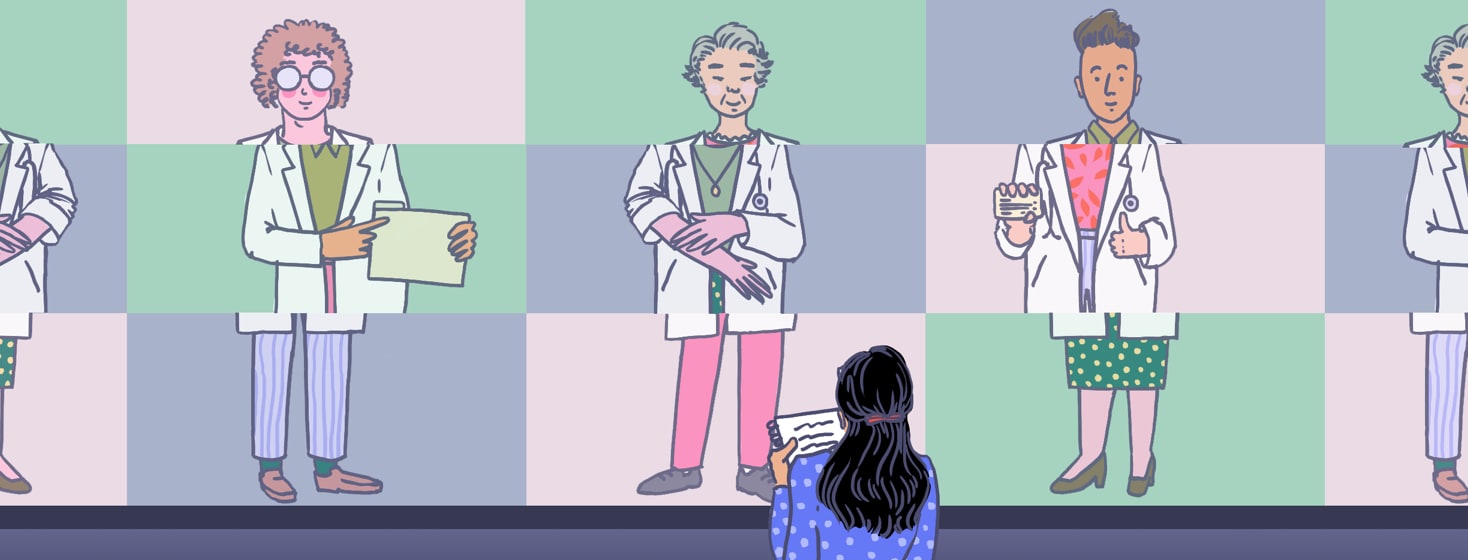My Geographic Atrophy Care Team
Recently I was reminded why it takes a team to provide care for macular degeneration.
I was diagnosed over 10 years ago with early stage age-related macular degeneration (AMD) by my optometrist. Fortunately, he had the equipment to perform the same optical coherence tomography (OCT) scan that a retinal specialist uses in their practice. I asked for a referral to a retinal specialist since my mom and sister both had wet AMD.
More frequent visits became necessary
My retinal specialist has been my primary provider for AMD care. From once a year visits initially, I now go every 2 months. The need for more frequent visits became an issue as the condition progressed, and especially now that I have geographic atrophy (GA).
The decision to begin injections was left to me.
Starting injections
The day the tech gave me the eye exam and told me my right eye was 20/150, I panicked. When the doctor came in, I told him I was ready to begin treatment.
We talked about the eye exam, and he explained that the results could vary. Even so, I was ready to start treatment to slow the progression and got my first injection that day.
My doctor recommended new glasses
Since that visit, I have noticed my results on the eye exam do vary. My treated eye has responded well to treatment. There has been no perceptible progression in 1 year now.
I have noticed my overall vision is not as good. My good left eye isn’t doing as well to compensate for the right eye. The screening eye exams have all shown results that are worse than a year ago in my untreated eye.
This has greatly concerned me, and at the last 2 visits, I have asked my retina specialist if I need to consider treatment in both eyes. He suspected I needed new glasses and encouraged me to see my optometrist for a refractive exam. I was reluctant, since my glasses weren’t even a year old.
Seeing better with new glasses
At the second visit with poor eye exam results in my untreated eye, my retina specialist told me he wanted to see me in new glasses at my next visit. If that exam confirmed the left eye was worse, he would consider treatment.
I am so thankful that he insisted I see an optometrist. A thorough refractive exam gave results for both eyes significantly better than the ones at the retina specialist. I have new glasses now and can see much better. Going forward, I will listen to my retina specialist and rely on his judgment based on the OCT scans for treatment decisions.
The best care requires a team
I believe we all need a team to provide the best care. I need an optometrist or ophthalmologist to provide routine eye exams. My retina specialist is essential to provide appropriate treatment for GA.
There is 1 other doctor I need on my healthcare team. That person is my primary care provider. My provider makes sure my blood pressure is under control, discusses weight management with me, and recommends activities to keep me healthy. All these factors can play a role in managing macular degeneration.
I hope my experience will encourage others not to neglect those annual eye exams and to regularly see your primary care provider to help you with overall health.

Join the conversation